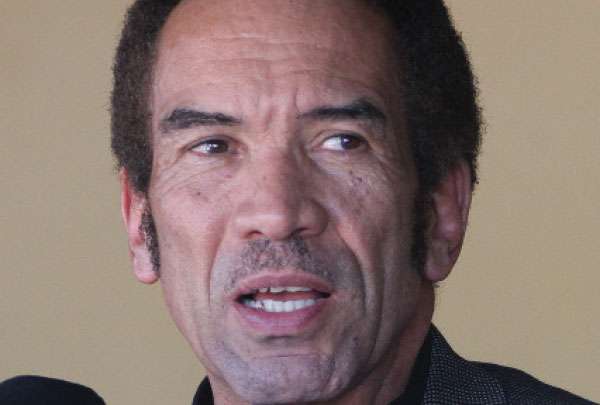Independence of the judiciary at stake
The Law Society of Botswana (LSB) this week filed court papers challenging President Ian Khama’s powers when appointing judges of the High Court. The landmark case, which some in legal circles say is of national and international interest, was triggered by a recent decision by Khama to reject a recommendation of the Judicial Service Commission (JSC) to appoint attorney Omphemetse Motumise a judge of the High Court on a permanent basis.
Instead, the President endorsed Dr Zein Kebonang - the brother of the Minister of Trade and Industry in Khama’s cabinet, Sadique Kebonang - for the position on an acting basis. LSB is challenging the President’s decision because it holds that the JSC has sole responsibility for deciding who should be appointed judges of the High Court. “The President does not retain any form of discretion to refuse or reject the advice of the JSC on which candidate should be appointed,” reads part of the LSB’s court papers seen by this publication.The case, which is at the heart of the rule of law as it touches on issues of the independence of the judiciary, will be heard by justices Abednico Tafa and Singh Walia on a date to be set. LSB argues in papers tabled on Tuesday that Khama’s decision not to appoint Motumise behind closed doors has the potential to contribute to erosion of public confidence in the judiciary.
“Candidates apply to a seat of profound public power and prestige, to which an appropriately high standard of public scrutiny and accountability is attached,” a filing affidavit reads The law society wants the High Court to determine, among other things, whether the President has a discretion to refuse candidates who were or are nominated by the JSC for appointment as judges of the High Court, to what extent the proceedings and decisions of the JSC are confidential, and to what extent the LSB representative on the JSC is entitled to consult with and report to the LSB Council on decisions and proceedings of the JSC.
Lawyers representing LSB argue in their court papers that the role of the JSC in the appointment of judges under Section 96 (2) is pivotal and crucial. They note that the scope and reach of the section does not permit exercise of any discretion by the President to refuse or reject the advice of the JSC regarding which candidate to appoint.The society’s legal team, comprises Dick Bayford, Osego Garebamono, Tshiamo Rantao and Mboki Chilisa. Legal brains view the case as “groundbreaking” and regard it as a matter of huge national importance because it touches on the integrity and credibility of the judiciary, its independence, the doctrine of separation of powers and the rule of law.
The lawyers want President Khama’s decision not to appoint Motumise as a judge of the High Court to be reviewed and set aside. They are also pleading with the Judges to declare that the President is bound to follow and implement the lawful advice of the JSC on the appointment of High Court judges in terms of section 96(2) of the constitution.





